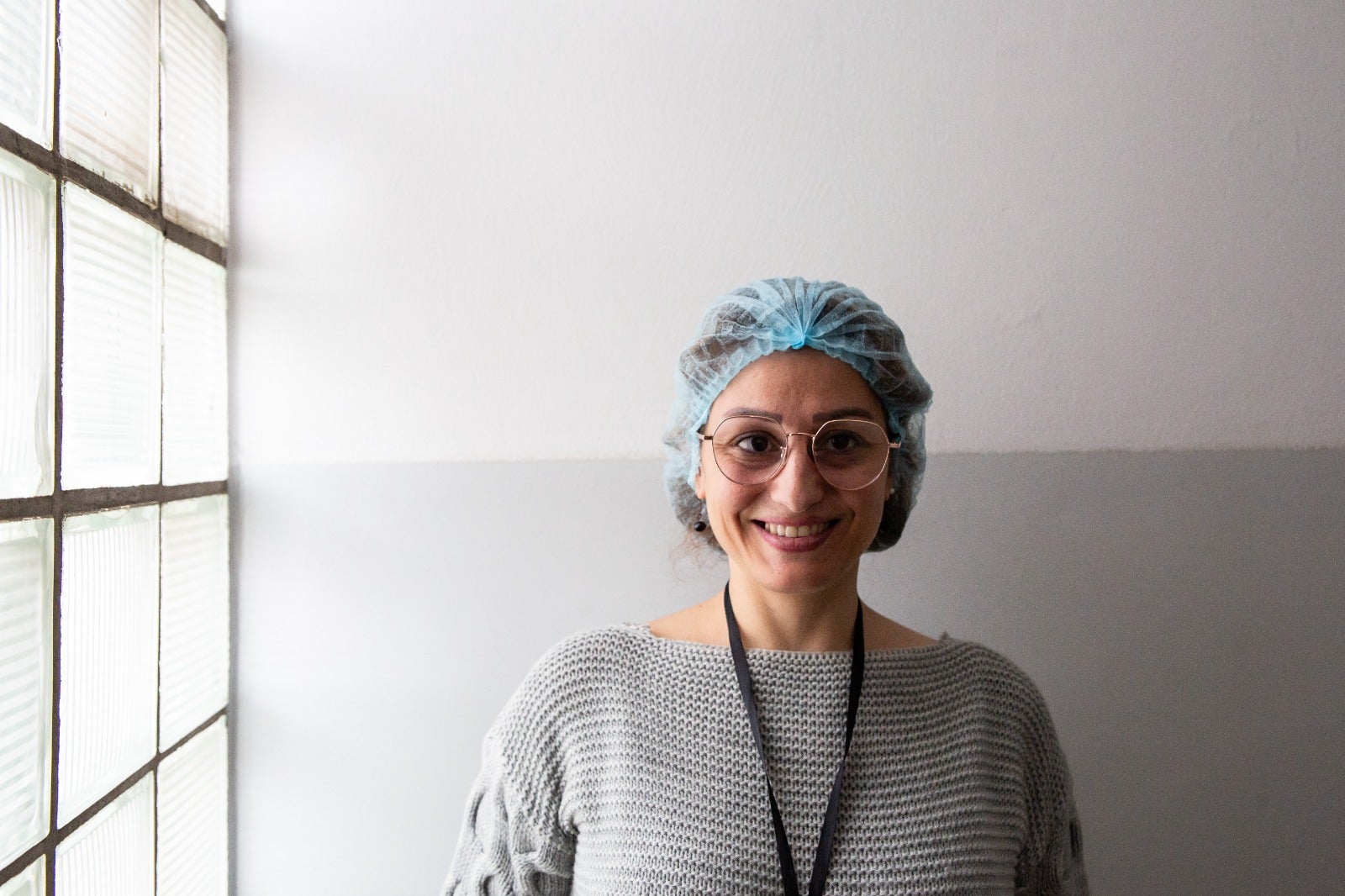From where I stand: “Destigmatizing menstruation is vital to empowering women in the community”
Date:
Lebanon’s female labour force participation rate stood at a mere 28.7 per cent in 2022, notably lower than the corresponding rate for men (67 per cent).[1] Funded by the Government of Australia, UN Women partnered with the NGO Acted to provide temporary employment opportunities for 300 women in four menstrual hygiene production facilities in Beirut, Saida, Tripoli and Bekaa. Among them was Ruba Rayya, in Bekaa, whose journey was marked by both difficulties and unexpected empowerment.

"As a mother of two daughters, my eldest 16 and youngest 11, I confronted the unique challenges of raising [my eldest] child with brain paralysis. This condition demanded not only meticulous care but also challenged societal norms as I brought my eldest daughter, Tia, into the community. The bittersweet journey tested my patience and resilience, yet it also granted me incredible strength.
From Tia’s early years, I challenged community norms, defiantly taking her out with me wherever I went. ‘Keep her at home! Why are you taking her out?’ people from society would say. I wheeled her to work, affirming my pride in her and emphasizing that her place extends beyond our home into the community. This empowered her to accept herself, acknowledging her uniqueness.
Despite my gratitude for her, the journey has been a torment. Tia questions her disability, asking, ‘Why did God create them [my legs] if they are dysfunctional?’ I console her, highlighting her uniqueness and telling her that we are all born differently, and our uniqueness is what makes us special. She eventually agrees, and her evolving strength fills me with pride.
Moved by personal experience, I have extended my support to mothers facing similar challenges. Caring for a child with a disability has its rewarding aspects, offering strength and unique perspectives.
Simultaneously, I found purpose in UN Women and Acted’s project focusing on the production and distribution of women-made disposable pads. Despite being unfamiliar with the field, I assumed the role of supervisor, overseeing hygiene standards, managing inventory and supporting fellow women in their roles.
I found a sense of fulfilment in contributing to a project that not only addresses a critical need but also empowers women within the community. The hours at the facility swiftly passed as we engaged in the entire process, from manufacturing sanitary pads to packaging and dispatching them for distribution. I can never grow tired of the laughter and sense of camaraderie that permeate the workplace atmosphere.
The project I am part of plays a crucial role in breaking menstrual taboos. Beyond providing employment, it provides essential education to young girls and contributes to broader awareness. Destigmatizing menstruation is vital to empowering women in the community. This initiative has tangible impacts, contributing to a cultural shift and dismantling long-standing taboos surrounding women’s health.
Through my story, I aspire to inspire others to embrace differences, find strength in adversity and foster communities that support women from all walks of life. UN Women’s commitment to initiatives like ours underscores the transformative power of addressing societal challenges at the grass-roots level, ultimately contributing to a more equitable and empowered future for women globally."
Through UN Women’s project “Humanitarian assistance to women by women: Women at work to reduce period poverty and food insecurity in the Lebanon crisis”, in partnership with Acted and funded by the Government of Australia, Ruba, along with 300 other women, have produced over 64,000 boxes of sanitary pads, with a percentage distributed to women and girls in need.